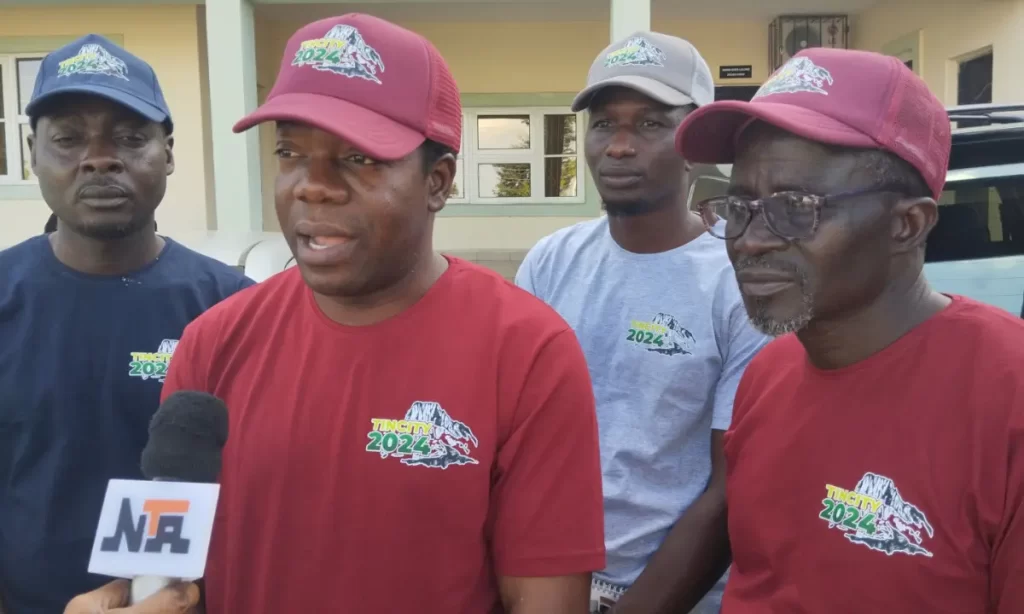The National Veterinary Medical Association, NVMA, has emphasised its capacity to significantly enhance Nigeria’s gross domestic product through qualitative livestock production.
This was disclosed by the association’s national president, Dr Moses Arokoyo, while briefing journalists in Jos, the Plateau State capital, ahead of NVMA’s national congress scheduled for October 21-25 in the state.
The congress marks 100 years of the association’s existence, dating back to its inception in 1924.
He said: “This year’s congress is very significant in the sense that my existence as a profession dates back to 1924. So, it is like a homecoming for the veterinary profession, coming back to Jos. The profession started here in 1924 in Vom, and so coming to Jos this year to have our national congress is very significant.”
Arokoyo expressed the veterinarians’ alignment with President Bola Tinubu’s declaration of a state of emergency concerning food security.
He assured that the association has adequately repositioned itself to play a fundamental role in this national initiative.
Speaking on the economic potential of the livestock sector, he pointed out that it is currently in recession, stating: “As of Q1 this year, we are looking at -23.39 per cent from livestock and about -1.14 per cent from aquaculture.
So, we can officially say, based on statistics, that the livestock industry is in recession.
“We have a role to play in production and health, and we know that as veterinarians, we are properly positioned to change this status quo. We are in a recession, and these are the realities. That’s why we see food scarcity and rising prices.
“If you bring in 10 million broilers and run six cycles of 10 million each, harvesting them at 2kg with modern vaccinology and technology, the expertise we have enables us to contribute N420 billion to the economy.”
He also highlighted the role of veterinarians in public health, saying: “You may not know, but 2.6 billion of the sicknesses and diseases people experience today come from zoonotic diseases, and about 2.7 million deaths result from zoonosis. If 75 per cent of emerging diseases come from animals, any nation that fails to take its veterinarians seriously is unprepared for another pandemic.”
On the congress’s focus, he noted: “We are going to have professionals and experts, veterinarians like ourselves, coming from different fields to share with us how to improve through artificial intelligence. We are also going to be opportune to have the Deputy Secretary-General of the United Nations address us with a special message during the opening ceremony.”
He further stressed the shortage of veterinarians in Nigeria.
“There are not enough veterinarians in this country. There are 774 local governments, and very few of them have a vet. When a disease outbreak happens, it starts in areas we overlook—typically not in the city, but in a village or local government without a vet,” he stated.
He emphasised the importance of early detection and prevention, pointing to rabies as a preventable but fatal disease that continues to kill due to inadequate vaccination efforts. “In the last three months, veterinarians across all state chapters have been vaccinating dogs for free to prevent rabies. This has been a massive exercise because no one should die from rabies,” he said.
Arokoyo also called on the government to increase budgetary allocations to agricultural and livestock development.
He urged the government to adhere to the Maputo Declaration, which recommends that 10 per cent of the national budget be allocated to agriculture.
“We are thankful the President has announced the Ministry of Livestock Development. Maybe we can move from 1.3 per cent to the actual 10 per cent for a proper budget line,” he said.
In his closing remarks, Arokoyo reiterated the critical role veterinarians play in both public health and national development, calling on the government to fully integrate them into the country’s development plans.
“We want to save lives and prevent zoonotic diseases from continuing unchecked. As we meet, we urge the federal government to consider employing veterinarians at all levels and in all local governments. This is not for self-aggrandisement but for the reality that we face,” he said.
Nigeria’s GDP can be enhanced through qualitative livestock production — Veterinarians
Do you want to share a story with us? Do you want to advertise with us? Do you need publicity for a product, service, or event? Contact us on WhatsApp +2348183319097 Email: platformtimes@gmail.com
We are committed to impactful investigative journalism for human interest and social justice. Your donation will help us tell more stories. Kindly donate any amount HERE




